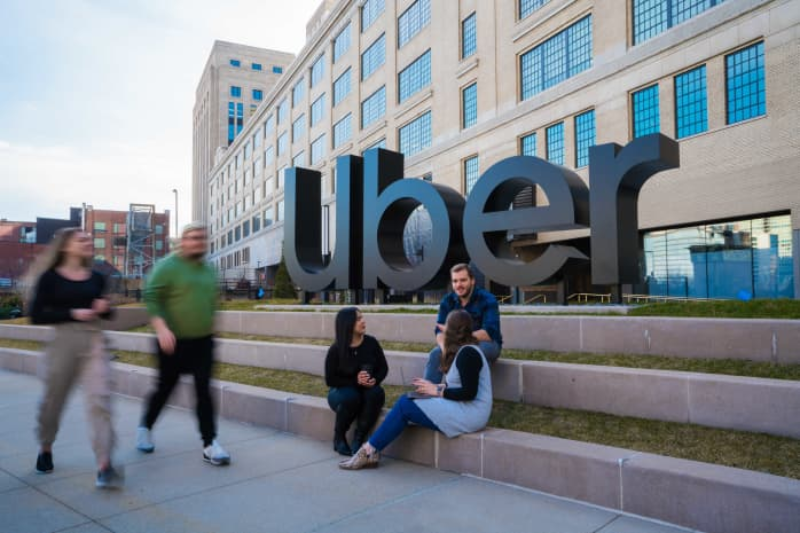What Are Share Buybacks and How Do They Affect Investors?

As the earnings season comes to a close, many investors should feel pleased with this quarter’s results.
Market sentiment appears positive, with more than half of the “Magnificent Seven” delivering another round of positive results.
However, one key piece of information may have dropped off investors’ radar.
Two of the Magnificent Seven, Apple (NASDAQ: AAPL) and Alphabet (NASDAQ: GOOGL), have extended their share buyback programmes.
Notably, Apple’s share buyback programme, valued at US$110 billion, is set to be the largest in US corporate history.
Apple and Alphabet are not alone in their strategy to repurchase shares.
Earlier this year, fellow tech juggernaut Meta Platforms (NASDAQ: META) also declared a US$50 billion share repurchase initiative.
Why do companies engage in share buybacks?
Companies repurchase their own shares for various reasons.
More often than not, the most common reason cited is to reward their shareholders.
For example, semiconductor giant Lam Research (NASDAQ: LRCX) recently authorised a US $10 billion share repurchase scheme.
This is aligned with the company’s strategy to return 75% to 100% of its free cash flow to stockholders in the form of dividends and share buybacks.
Similarly, Deutsche Bank (NYSE: DB) has justified its €675 million repurchase programme earlier this year as a means to increase capital distributions to shareholders.
A share buyback programme reduces the number of outstanding shares, implying that each remaining share represents a greater ownership stake in the company.
By buying back these shares, this process not only increases the intrinsic value of each share but also boosts the company’s earnings per share (EPS).
As a result, shares of the company become more valuable.
Companies may also engage in share buybacks as a vote of confidence and to attract buying interest from investors.
A buyback signals to investors that the company believes its shares are undervalued.
This was best demonstrated earlier this year when Uber (NYSE: UBER) authorised its first-ever share repurchase programme of up to US$7 billion, demonstrating confidence in the company’s recent financial performance.
This announcement excited the market, causing Uber’s share price to surge over 14% the next day.
How can share buybacks benefit the company?
Companies might also initiate a buyback programme for their benefit.
Share repurchases can offset the re-issuance of new shares as stock-based compensation for employees.
By issuing shares to employees, this move helps to retain and motivate talent without diluting the shares held by existing investors.
With more employees owning shares of the company they work for, it also aligns their interests with other shareholders.
Additionally, buybacks can serve as a defence mechanism against hostile takeovers, making it more expensive for an acquirer to gain a majority stake.
Buybacks are also more flexible as compared to dividends.
As there are no deadlines for buying back shares, companies can scale up or down their purchasing activity based on their financial health and market conditions.
Important things to take note of
While share buybacks can be advantageous for investors, they are not always beneficial.
Investors should remain cautious and not blindly follow market sentiment.
Reflecting on Uber, its shares eventually declined back to their value before the announcement of the share buyback programme in late April.
In the long term, a company’s fundamentals and growth prospects are more crucial determinants of where its share price will head.
In fact, some investors view share buybacks as a waste of money, preferring dividends that can allow them to redeploy the cash where they wish.
Some also prefer that the company reinvest all their profits into growing the business rather than splashing it on buybacks.
Reflecting on Warren Buffet’s words, share buybacks are favourable only when two conditions are met.
Firstly, the company must have sufficient funds for operational needs and maintain sufficient liquidity.
Secondly, the stock must be trading at a discount to its intrinsic value.
Therefore, it is always necessary for investors to conduct their research before buying any stock, regardless of whether it has announced a share buyback programme.
Dive into the future of technology with our newest FREE report, “The Rise of Titans.” Discover how the big 7 US tech stocks can be your ticket to huge long-term gains. Download your copy today and see how easy it is to supercharge your portfolio.
Follow us on Facebook and Telegram for the latest investing news and analyses!
Disclosure: Aw Kai Rui does not own any of the stocks mentioned in this article.
The post What Are Share Buybacks and How Do They Affect Investors? appeared first on The Smart Investor.

 Yahoo Finance
Yahoo Finance 